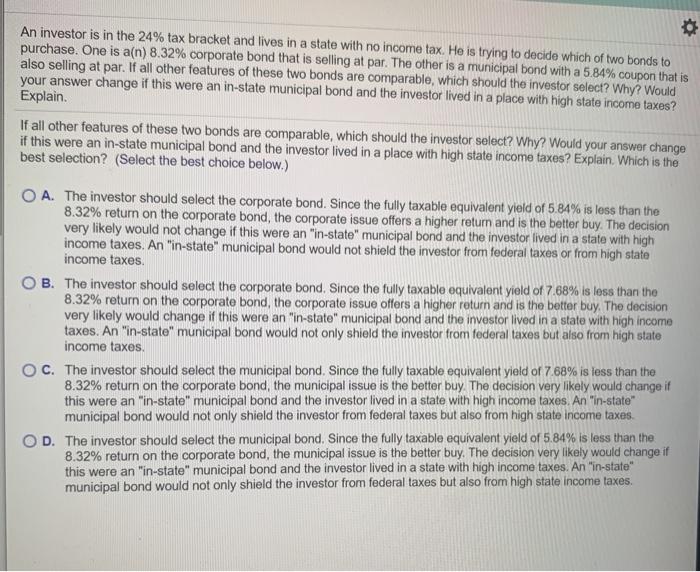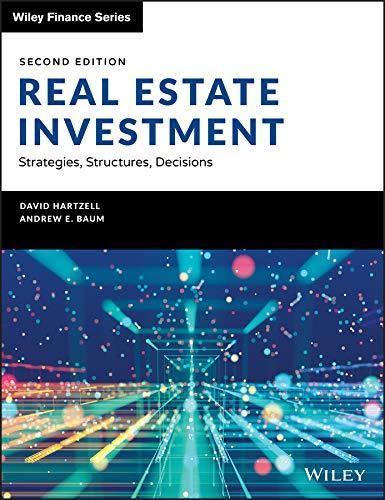An investor is in the 24% tax bracket and lives in a state with no income tax. He is trying to decide which of two bonds to purchase. One is a(n) 8.32% corporate bond that is selling at par. The other is a municipal bond with a 5.84% coupon that is also selling at par. If all other features of these two bonds are comparable, which should the investor select? Why? Would your answer change if this were an in-state municipal bond and the investor lived in a place with high state income taxes? Explain. If all other features of these two bonds are comparable, which should the investor select? Why? Would your answer change if this were an in-state municipal bond and the investor lived in a place with high state income taxes? Explain. Which is the best selection? (Select the best choice below.) O A. The investor should select the corporate bond. Since the fully taxable equivalent yield of 5.84% is less than the 8.32% return on the corporate bond, the corporate issue offers a higher return and is the better buy. The decision very likely would not change if this were an "in-state" municipal bond and the investor lived in a state with high income taxes. An "in-state" municipal bond would not shield the investor from federal taxes or from high state income taxes B. The investor should select the corporate bond. Since the fully taxable equivalent yield of 7.68% is less than the 8.32% return on the corporate bond, the corporate issue offers a higher return and is the better buy. The decision very likely would change if this were an "in-state" municipal bond and the investor lived in a state with high income taxes. An "in-state" municipal bond would not only shield the investor from federal taxes but also from high state income taxes. OC. The investor should select the municipal bond. Since the fully taxable equivalent yield of 7.68% is less than the 8.32% return on the corporate bond, the municipal issue is the better buy The decision very likely would change if this were an "in-state" municipal bond and the investor lived in a state with high income taxes. An "in-state" municipal bond would not only shield the investor from federal taxes but also from high state income taxes. OD. The investor should select the municipal bond. Since the fully taxable equivalent yield of 5.84% is less than the 8.32% return on the corporate bond, the municipal issue is the better buy. The decision very likely would change if this were an "in-state" municipal bond and the investor lived in a state with high income taxes. An "in-state" municipal bond would not only shield the investor from federal taxes but also from high state income taxes







